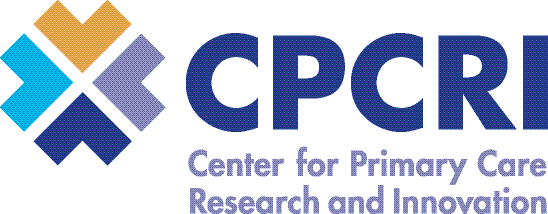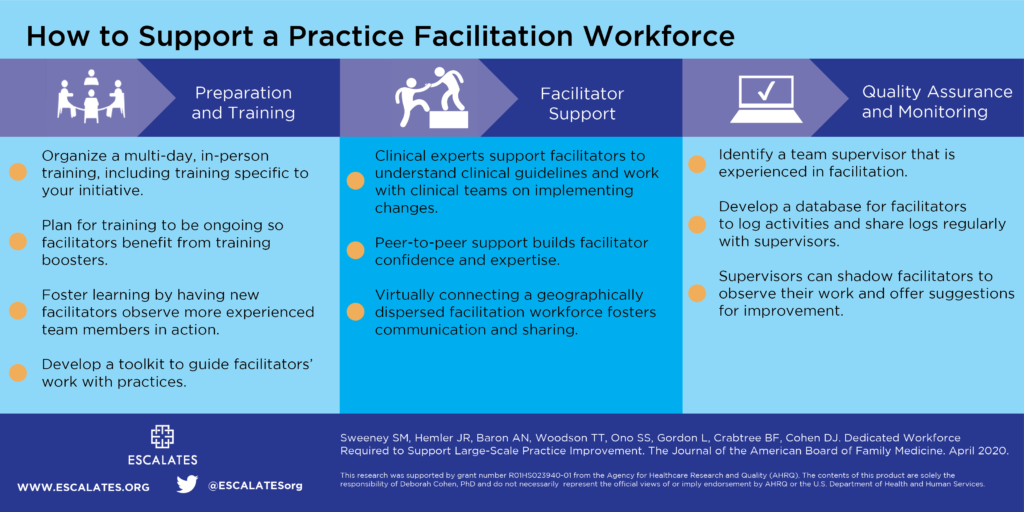Shannon Sweeney, PhD, MPH, ESCALATES Qualitative Team Project Manager and Analyst
Practice facilitation is a widely used and effective strategy to assist primary care practices with implementing changes that improve quality. If you are about to embark on a large-scale quality improvement initiative that includes facilitators, here is what you can do to ensure that the facilitation you offer practices is consistent and high quality:
Plan for a multi-day, dynamic, in-person training prior to facilitators starting their work, and expect that training will be an ongoing activity. Relying exclusively on external training programs is insufficient to prepare facilitators.
Develop a toolkit to guide facilitators’ work with practices, and train facilitators in using this toolkit.
Identify experienced facilitation managers that can work closely with facilitators to support their work with practices, and monitor facilitators’ work through a database or tracking tool.
Create opportunities for connection among facilitators, even if this is virtual, and foster peer-to-peer learning opportunities, where facilitators can learn the art of facilitation from each other.
The Bottom Line
Facilitators are a diverse workforce that spend much of their time in the field working with practices. This creates challenges for organizations that employee and wish to support these professionals. Organizations that deploy facilitators for quality improvement initiatives should develop the infrastructure to train, support, and monitor this workforce.

